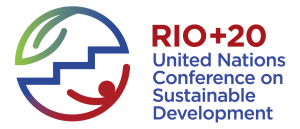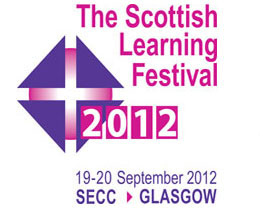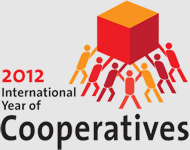

Global Citizenship blog
North Lanarkshire Council secondary schools have been involved in a video-making project about the hatred and bigotry associated with sectarian behaviour in Scottish society. Students from Bellshill Academy and Cardinal Newman High School worked together to make a video about this form of prejudice and hate-crime, to deliver an anti-sectarian message to young people in the same age group. A NLC news release provides background and details.
BBC Scotland reported on the launch of this video which encourages tolerance of diversity and the eradication of sectarian actions and beliefs.
Glasgow’s ‘Sense over Sectarianism‘ programme continues to work in partnership with schools and community groups to improve the lives of local citizens.
More11am - 12pm, Tuesday 19 June 2012
 What are your green dreams for the future?
What are your green dreams for the future?
What message will you send to world leaders?
How can Scotland become more sustainable?
What can we expect from this globally important event?
Over 150 heads of state and world leaders will gather in Rio de Janeiro from 20-22nd June 2012 for crucial talks at the United Nations Conference on Sustainable Development. Stewart Stevenson MSP, Minister for the Environment and Climate Change, will be one of those travelling to Rio as part of the official UK delegation.
Education Scotland, through Glow, is giving you the chance to link with the Minister live from Rio to learn more about the event and the hopes and expectations of the UK delegation.
The conference, referred to as Rio+20, will mark 20 years since the historic Earth Summit in the same city in 1992 which put issues such as climate change and the protection of biodiversity on the map and gave birth to Agenda 21 – an action plan for a sustainable future which was adopted by national governments, cities and local authorities across the world. Rio+20 will focus on seven priority areas including: decent jobs, energy, sustainable cities, food security and sustainable agriculture, water, oceans and disaster readiness.
Rio+20 provides an opportunity to move away from business-as-usual and to take bold steps to end poverty and address environmental destruction.
This will be an interactive Glow meet so get your questions, messages, ideas and green dreams ready for Rio!
This Glow meet will be suitable for learners in primary and secondary schools.
Visit http://bit.ly/glowrio20 to register and join the Glow meet on the day. Free Rio+20 resources are available at: http://bit.ly/JxZr5G
More Education Scotland has published the seminar programme for the Scottish Learning Festival 2012, SLF 2012, our annual conference and exhibition for educators. The event takes place in Glasgow on Wednesday 19th and Thursday 20th September 2012, and we’ll be expecting thousands of education professionals to join us at the SECC from across Scotland, the UK and the world. Free to attend, the programme offers a wide range of keynotes, seminars and opportunities for professional dialogue. The overall theme this year is ‘Creative Learning, Creative Thinking’, and delegates will be exposed to creativity in many forms.
Education Scotland has published the seminar programme for the Scottish Learning Festival 2012, SLF 2012, our annual conference and exhibition for educators. The event takes place in Glasgow on Wednesday 19th and Thursday 20th September 2012, and we’ll be expecting thousands of education professionals to join us at the SECC from across Scotland, the UK and the world. Free to attend, the programme offers a wide range of keynotes, seminars and opportunities for professional dialogue. The overall theme this year is ‘Creative Learning, Creative Thinking’, and delegates will be exposed to creativity in many forms.
Global citizenship themes are well-represented among the seminars. Among the list of inclusions are sessions on educational work relating to Homophobia, Sectarianism, Games legacy, environmental projects, ‘pupil voice’, and international links. The full list of sessions, with the codes necessary for booking, is provided on the event site and also in the online interactive version.
In the Exhibition hall you’ll find many organisations involved in Scottish education, from the public, commercial and voluntary sectors. These exhibitors offer support for educators in many forms, and our team will also be running a ‘developing global citizens’ stand again this year - a chance for delegates to meet us and talk about how global citizenship is developing in Scotland.
Come and join us! We will add further updates about SLF 2012 to this blog as the dates get closer.
More Global Citizenship education has Social Justice at its heart, and has clear links with the approaches taken by co-operatives and social enterprises. Both economic concepts have a focus on community benefit and well-being, and the involvement of local people in leading initiatives to improve their world.
Global Citizenship education has Social Justice at its heart, and has clear links with the approaches taken by co-operatives and social enterprises. Both economic concepts have a focus on community benefit and well-being, and the involvement of local people in leading initiatives to improve their world.
2012 is the International Year of Co-operatives, IYOC 2012, and part of the celebrations is a big event for educators to be held at New Lanark next week. The event will highlight the contribution that study about Co-operatives and the Co-operative movement can make to implementation of Curriculum for Excellence. The organisers, the Co-operative Education Trust Scotland, has a strong track record of support for schools which includes the development of teaching resources. New SQA Awards in Cooperative Studies are now available for education providers to use with their students.
In Scotland our schools have substantial experience of developing Enterprise education, and are still innovating. A feature article in the current issue of the GTCS magazine ‘Teaching Scotland’, titled “Future Proof“, reports on programmes to support development of social enterprises in schools such as Banchory Academy, Aberdeenshire, and St Mary’s Primary, Larkhall, South Lanarkshire. The Scottish Social Enterprise Academy works with schools to develop skills and extend the vision of social entrepreneurship.
More Each year Refugee Week grows and increases in profile, making its mark on the UK’s cultural calendar. This year’s theme Spirit captures:
Each year Refugee Week grows and increases in profile, making its mark on the UK’s cultural calendar. This year’s theme Spirit captures:
Refugee Week is all about having fun, broadening horizons and breaking down barriers. Every June the week long UK-wide festival of arts, cultural and educational events celebrates contributions refugees have made to the UK, and promotes understanding about why people seek sanctuary.
Click here to see the exciting programme of activities and events for 2012>>
More![PolarlandsIntro_tcm4-651768[1]](../../../../globalcitizenship/files/2012/05/PolarlandsIntro_tcm4-6517681-211x300.jpg) This comprehensive case study developed in partnership with Rhu Primary School in Argyll and Bute shows the climate change can provide an excellent context for learning even with the youngest learners.
This comprehensive case study developed in partnership with Rhu Primary School in Argyll and Bute shows the climate change can provide an excellent context for learning even with the youngest learners.
The case study is a description of an extended, collaborative early and first level interdisciplinary study on climate change undertaken by the Primary 1, 2 and 3 classes at the school.
The study was called Polar Lands and was based on the book ‘Who will save us?’ by Rebecca Morch. It incorporated the themes of enterprise and sustainability. The project also involved parents and community partners from the planning stage right through to the evaluation of the success of the learning.
This study exemplifies the following characteristics of interdisciplinary learning:
Click here to see the full case study and accompanying videos.
More Design a poster, picture, graphic that relates to one of the main themes outlined in the Ready Scotland/ Ready for Emergencies resource (eg. severe weather, flooding etc). This could be a warning sign, campaign poster or image of a recent event.
Design a poster, picture, graphic that relates to one of the main themes outlined in the Ready Scotland/ Ready for Emergencies resource (eg. severe weather, flooding etc). This could be a warning sign, campaign poster or image of a recent event.
14 winning entries will be selected for inclusion in this year’s ‘Ready for Winter’ campaign calendar with a number of other prizes on offer as part of the competition.
Also every contributor will receive a free copy of the calendar.
More information on this including terms and conditions, submission address and deadline as we as topics and entry categories are contained in the following attachments: 2012_Resilience Week_ Calendar competition - terms and conditions for entries 2012-13_ Resilience Week_ Calendar Competition_Topics
The official launch of the competition will be on Wednesday, 13 June 2012 .
If you wish to pre-register for the competition please email [email protected]
More Storytelling is part of human existence around the world in every culture, and encouraging children to develop and tell stories is a frequently-used form of education. The Storylines methodology is well-established in Scottish schools, and involves children creating their own fictional communities in which their stories will be set. In the hands of imaginative teachers, this approach lends itself to some very thoughtful learning about global citizenship.
Storytelling is part of human existence around the world in every culture, and encouraging children to develop and tell stories is a frequently-used form of education. The Storylines methodology is well-established in Scottish schools, and involves children creating their own fictional communities in which their stories will be set. In the hands of imaginative teachers, this approach lends itself to some very thoughtful learning about global citizenship.
WOSDEC has worked with Glasgow City Council and Strathclyde University to develop a Global Storylines project, which has been trialled in Glasgow primary schools. It used Storylines in conjunction with drama to enable learners to explore challenging global issues such as peace and conflict, interdependence, land ownership, farming and food security.
A delegation from Glasgow will participate in the international conference ‘Storyline in Iceland 2012′ this summer, sharing their experience of using this approach in Scotland and also learning from the experience of teachers in other nations. And a recent dissemination event at Strathclyde University helped spread the message among teachers from a number of Scottish local authorities.
For teachers who want to know more, there’s also an article about the Global Storylines project in the Summer 2012 edition of the excellent ‘Stride‘ magazine, available for free download from the IDEAS network website.
For teachers who might consider how to use Storyline to support Language teaching, the Creative Dialogues website might prove useful.
More Yesterday the national finals of the Euroquiz 2012 competition were held in the Scottish Parliament Debating Chamber in Edinburgh. Congratulations to St Mary’s Primary School, Duntocher, West Dunbartonshire, whose team won this year’s event; and well done to all the teams of Primary 6 pupils from around Scotland who took part in the regional heats and in the finals. The knowledge displayed by the students, and their skills in information retrieval, were very impressive for all of us who saw them in action at the various stages of the competition.
Yesterday the national finals of the Euroquiz 2012 competition were held in the Scottish Parliament Debating Chamber in Edinburgh. Congratulations to St Mary’s Primary School, Duntocher, West Dunbartonshire, whose team won this year’s event; and well done to all the teams of Primary 6 pupils from around Scotland who took part in the regional heats and in the finals. The knowledge displayed by the students, and their skills in information retrieval, were very impressive for all of us who saw them in action at the various stages of the competition.
The event was recorded by Scottish Parliament TV, and the archive video footage is now available for viewers on their website.
The Euroquiz competition has been organised annually by the Scottish European Educational Trust for some years, and continues to attract mass participation and enhance learning about aspects of the European Union.
More Education Scotland hosted an event in partnership with the Ellen MacArthur Foundation and the University of Edinburgh on 30th March 2012 at the Menzies Hotel in Glasgow to explore how the concept of a circular economy can be used as a focus for sustainable development education and interdisciplinary learning.
Education Scotland hosted an event in partnership with the Ellen MacArthur Foundation and the University of Edinburgh on 30th March 2012 at the Menzies Hotel in Glasgow to explore how the concept of a circular economy can be used as a focus for sustainable development education and interdisciplinary learning.
The circular economy is a generic term for an industrial economy that is, by design or intention, restorative and in which materials flows are of two types, biological nutrients, designed to re-enter the biosphere safely, and technical nutrients, which are designed to circulate at high quality without entering the biosphere. The circular economy proposes a coherent framework for re-thinking and re-building a positive vision of the future.
Find out more about the Ellen MacArthur Foundation and the circular economy by watching this short video: www.ellenmacarthurfoundation.org/convince_me
The presentations and resources from the event are now available on Glow at https://portal.glowscotland.org.uk/establishments/nationalsite/Climate%20Change/Lists/Pages/Resources.aspx
More
Find us on